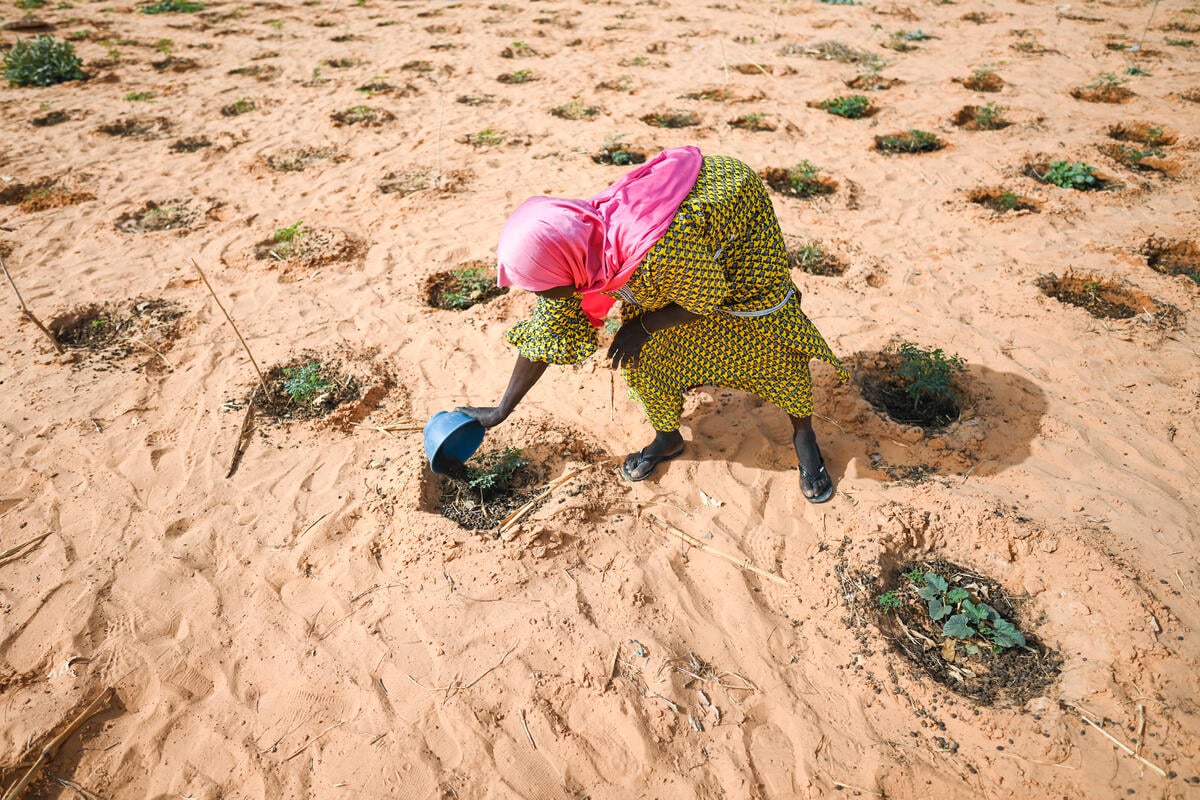A teenage refugee champions girls' education

A teenage refugee champions girls' education
When Muzon's family fled the war in Syria in early 2013, they briefly considered leaving her behind. The bright 14-year-old had been studying hard all year for her grade-nine school exams, which were just a month away, and her aunt urged the family to let her stay and continue her education.
In the end, her father decided the risks were too great, and so she fled with him and her siblings across the border to Jordan. "I knew she could make up for lost schooling, but if you lose your life there's no way to make up for that," Abu Mohammed, 45, told me when I met the family in Jordan's Azraq refugee camp.
Education has always played a big part in Muzon's life. Both of her parents were teachers back in Syria's southern Dara'a province, and her aunt and uncle were head teachers at local schools. "I didn't need them to tell me that education is important. I always just felt it," she explains. "Our house was built by an engineer. When I was sick I went to a doctor. Education is everything in life."
Now 17, her deeply held conviction of the importance of education has become a defining feature of Muzon's life in exile. Not only has she continued her studies in Jordan, but she has also become a forceful and increasingly high-profile advocate for education among Syrian refugees, particularly young women and girls.
Her campaigning has drawn comparisons with Malala, Pakistan's Nobel Prize-winning education advocate, whom Muzon has met several times and considers a personal friend. "She taught me that no matter what obstacles I face in life, they can be overcome."
Before the crisis began, Muzon remembers a normal, middle-class life surrounded by friendly neighbours and relatives. "I'm not saying I was a queen back in Syria. We had problems, good things and bad things, but it was like any normal life," she says.
"No matter what obstacles I face in life, they can be overcome."
The family's main home in Izra was close to a military base that regularly came under attack, leaving them trapped in the crossfire. Unable to endure the fighting any longer, they made their way to Jordan and settled initially in Za'atari refugee camp.
Before arriving they had little idea what to expect, and the transition was tough. Back home, Muzon and her three younger siblings each had their own room, and now the whole family was forced to share a single tent where they slept, cooked and washed.
Thankfully, Muzon's biggest fear – that there would be no schools in the camp – was quickly dispelled. She enrolled in summer classes to get to grips with the new Jordanian curriculum before passing her grade-nine exams.
As she continued her schooling, she noticed that many of her fellow pupils stopped attending classes, often girls around her own age. She heard about one girl who had dropped out and was trying to sell her schoolbooks. Muzon sought her out and convinced her to change her mind. A campaigner was born.
"After that I began advocating for education any time and any place. To my friends, their parents, neighbours or even just girls I met in the street," she says. She has also fought against the widely held belief within the camps that early marriage is the best way to secure the future of young female refugees.
"When I hear of people not letting their daughters go to school or marrying them off early, it makes me angry," she says. "Education is the armour that will protect you in life. If you get married before finishing your education, you won't be able to solve your own problems or educate your own children."
"If you get married before finishing your education, you won't be able to solve your own problems or educate your own children."
When I first meet Muzon in Azraq, where the family moved a little over a year ago, it's hard to imagine this neat, polite young woman going door-to-door to cajole parents into letting their daughters attend school. But as our interview starts, her gaze becomes intense and the pitch of her voice begins to rise with the passion of her argument. "Indomitable" was the description used by award-winning author and UNHCR Goodwill Ambassador Khaled Hosseini when he met Muzon on a visit to the camp, and it's easy to see why.
She says she has encountered opposition along the way: "some people refuse to listen from the start. They think, 'Why should we listen to her? She's my children's age.' But I don't let it discourage me. The opposite, in fact; it makes me want to talk to more people and try again and again."
Her friendship with Malala has provided Muzon with a role model for her campaigning cause, as well as raising her profile within the camp and beyond. She has met several other high-profile visitors to Azraq, and understands the importance of spreading her message through them to a wider audience.
"As an individual, I can convince people I meet to go to school but I can't build the schools or provide the teachers," she acknowledges. "We need the help of the international community to do that, so I need to get the message out to those who have the resources to help."
When I express admiration at what she has achieved despite her age and difficult circumstances, she brushes off the compliment. "Of course I have tried to turn this experience into a positive one," she says. "Being a refugee doesn't have to ruin your life. Many successful people have gone through hard times."
Education has given Muzon's life in exile a newfound purpose, and her simple message to the world is that the same can and should be true for every young refugee.















